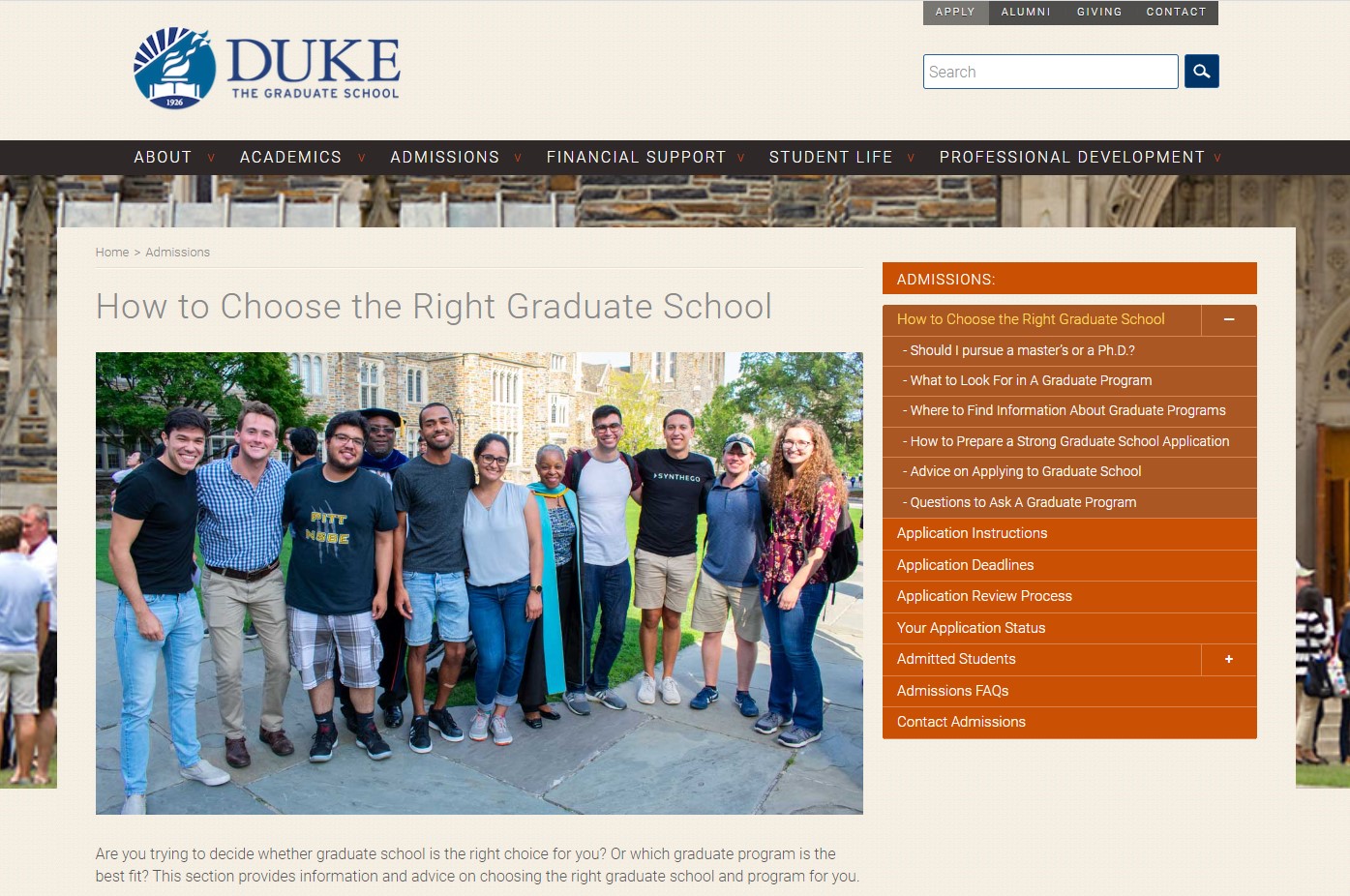In 2019, I oversaw the development of a new section on the Duke Graduate School website. This section was aimed at prospective graduate students who were looking for advice on the what, where, when, why, and how of evaluating and applying to graduate programs. The goal was to draw more prospective students to our website early in their graduate school search process and to help reinforce the Duke Graduate School’s status as a leader in the field.
One impetus for creating the new section was that research has suggested that students from underrepresented groups have fewer points of access to information about PhD study. Providing that information would be in line with the Duke Graduate School’s commitment to build a more diverse student body.
The Graduate School had some of this information in printed handouts and PowerPoint presentations that its recruiters used when speaking with prospective students, but it was not available online. In 2019, I decided to use those resources as a starting point for new web content aimed at not only serving key segments of prospective students, but also helping the school’s website in search performance.
The work began with researching various search terms around the theme of “applying to graduate school” and “choosing a graduate school”. Our findings suggested that there were few top-tier educational institutions offering high-quality, objective information aimed at helping prospective students choose a graduate school (as opposed to trying to convince them to choose a particular graduate school). That suggested a potential niche for us to provide good, useful content backed by Duke’s strong reputation, established credibility, and significant domain authority.
I then took inventory of what materials we had and what we might need to create, working closely with our recruiters. That resulted in a framework consisting of six main buckets of information:
- The difference between master’s and Ph.D. degrees
- What to look for in a graduate program
- Where to find information about graduate programs
- Tips on creating a strong application
- Advice from students, alumni, and faculty
- Questions to ask a graduate program during an interview
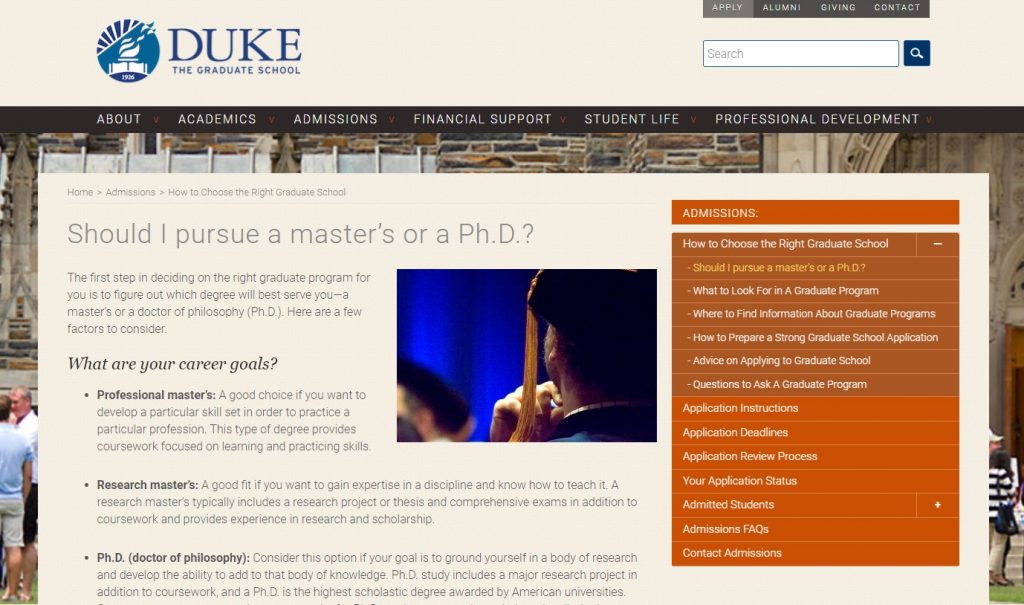
I then worked with my communications intern to develop the content for each bucket. We made it a point to write succinctly and with an eye toward SEO. This included smartly incorporating relevant keywords, strategically choosing page titles, and putting significant thought into the page structures to increase their chances of being chosen for SERP features.
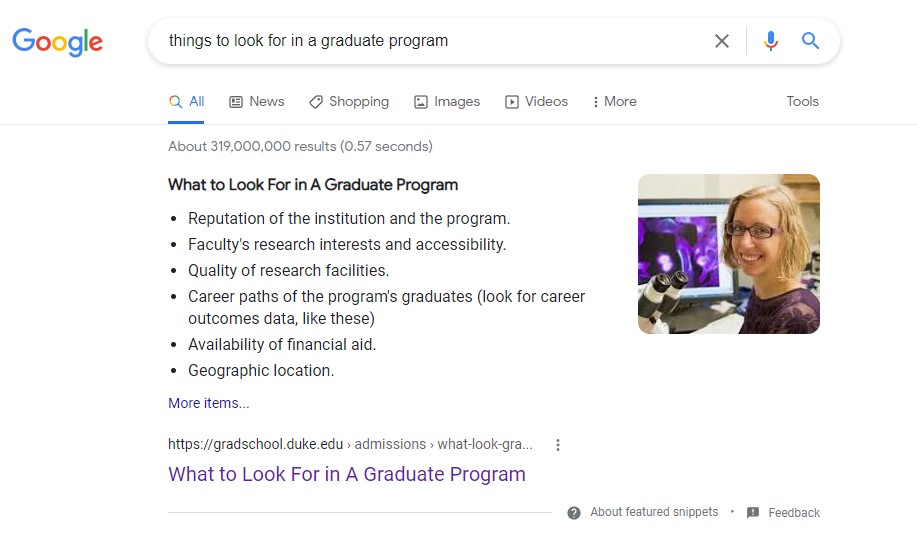
In addition to optimizing for search, we also optimized for usefulness and interest to prospective students. To that end, we developed handy tools such as a list of questions that prospective students should ask graduate programs during a campus visit, and a spreadsheet of various factors to consider in a program. We also made sure the pages were aesthetically pleasing, written in an approachable tone, and easy to digest.
A key principle of our approach was to provide objective information so that users would not dismiss this content as merely a recruitment pitch where the question of which school is the best fit would always be answered with “Duke.” To that end, we refrained from any overt sales pitches. We also pulled no punches. For instance, in the list of questions that prospective students should ask graduate programs, we included questions whose answers did not necessarily play to some of our programs’ strengths. We included those questions nonetheless in order to lend our content credibility and to project a sense of confidence about the overall quality of the graduate education offered by Duke.
We did, however, find some subtle ways to make sure that Duke-specific information was included in what users saw. For instance, in the spreadsheet of factors to consider in a graduate program, we included several blank columns that users can use to take notes on individual schools during their research. One of those columns was prepopulated with Duke information.
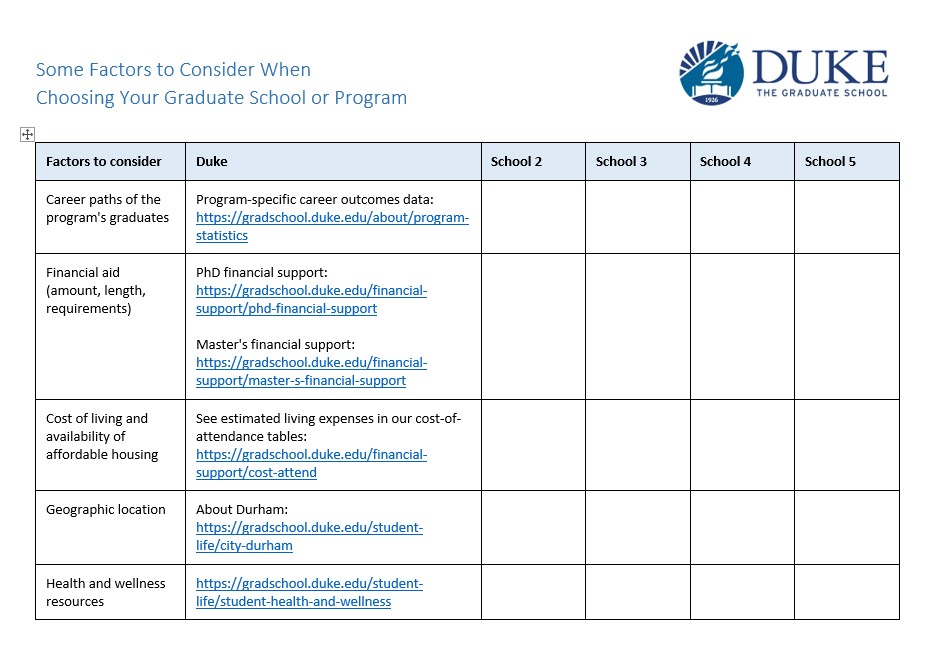
Another illustration of this light-touch approach is that wherever relevant, we made sure to link to Duke examples. For instance, when we noted that prospective students should look for in-depth statistics about individual programs, we pointed to our own data pages as an example.
Results
Three years later, this section of content consistently ranks in the top three results on SERPs for the most relevant search terms. The pages in this section rank in the top 10 on our site in terms of pageviews, and most of those views are coming via organic search. The page of questions to ask graduate programs has been particularly popular. What’s more, because the content is more or less evergreen, we have not had to do significant updates to the pages.
These webpages are also serving as the foundation for other possible content. For instance, we turned our list of questions to ask into graphics that could be used for social media promos. We are also considering developing a companion series of short videos around the topics discussed on these pages.
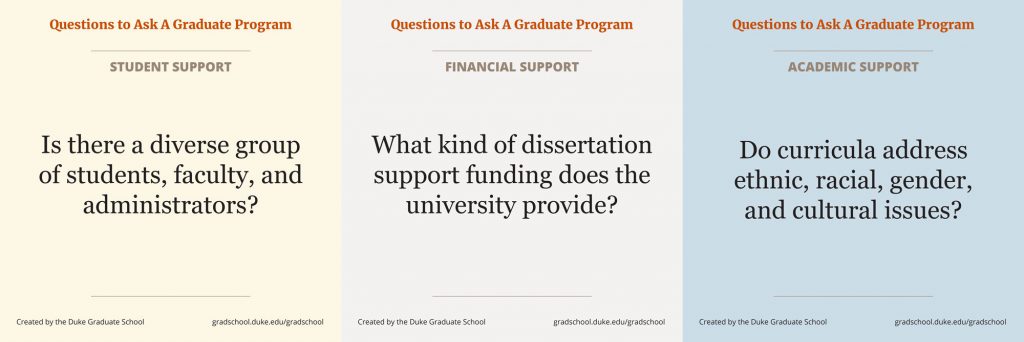
Overall, this content has served its purposes very well. It has helped fill an informational need for a key group of users, reinforce the school’s reputation as a leader in its field, and bring in a significant chunk of traffic that we would not receive otherwise.

